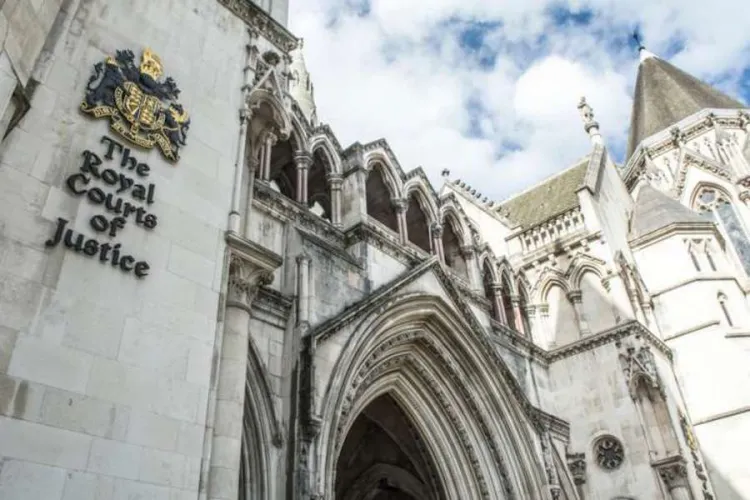The Royal Courts of Justice, which houses the High Court and Court of Appeal of England and Wales./ Willy Barton / Shutterstock
The High Court in London will hear a landmark case in July challenging the U.K. government over a law allowing abortion up to birth for Down syndrome.
The application, which was filed by Heidi Crowter, a woman with Down syndrome, and Máire Lea-Wilson, a mother whose 23-month-old son has the genetic condition, was granted on Oct. 17. The hearing date is now set for July 6-7.
The campaign group Don’t Screen Us Out said that Crowter and her team have crowdfunded more than $111,000 for the case against the U.K. government over the disability clause of the Abortion Act 1967.
Section 1(1)(d) of the Act permits abortion up to birth if “there is a substantial risk that if the child were born it would suffer from such physical or mental abnormalities as to be seriously handicapped.”
There were 3,183 abortions on the basis of disability recorded in England and Wales in 2019, 656 of them following a prenatal diagnosis of Down syndrome.
Crowter, 25, from Coventry in the West Midlands, said: “The law says that babies shouldn’t be aborted up to birth, but if a baby is found to have Down’s syndrome, it can be aborted up until birth. This is the current law in the UK and I think it’s not fair.”
“People like me are considered to be ‘seriously handicapped,’ but I think using that phrase for a clause in abortion law is so out of date.”
She continued: “The United Nations Committee on the Rights of Persons with Disabilities recently said that the United Kingdom should change its abortion law to make sure that people like me aren’t singled out because of our disabilities, but the government hasn’t changed the law.”
“So last year, me and other members of the Down’s syndrome community set out to get rid of the clause in the law, and now our case will soon be heard in the High Court.”
“I hope we win. People shouldn’t be treated differently because of their disabilities, it’s downright discrimination.”
Lea-Wilson, 32, from Brentford, West London, said that she was pursuing the joint legal action with Crowter for a simple reason.
“As a mother, I will do all that I can to ensure the fair and equitable treatment of my son, Aidan,” she explained.
“Throughout the last year since joining the case, it has become ever increasingly clear to me that Section 1(1)(d) of the Abortion Act, which differentiates the time limit for abortion, sets the tone for discrimination against people with Down’s syndrome which starts before they are born and continues throughout their life with devastating consequences.”
Aidan was not diagnosed with Down syndrome until the 34th week of his gestation. He was born two weeks later. Lea-Wilson has said that she was offered the option to abort her son three times after he was diagnosed.
She said: “I am thrilled to hear that the case will be heard in court on the 6th and 7th July, and I hope that this will be the time that we all stand up for equality.”
The High Court date comes weeks after the Northern Ireland Assembly voted in favour of a bill that would restrict abortions on the basis of non-fatal disability.
The Severe Fetal Impairment Abortion (Amendment) Bill passed 48 to 12 at its second reading on March 15.
Introduced by Paul Givan, a member of the Democratic Unionist Party, the bill would remove “severe fetal impairment” as an exception to the country’s abortion laws.
Under the abortion law imposed by the British government, which went into effect in March 2020, an unborn child who has been diagnosed with a condition such as Down syndrome or cleft palate can be aborted past the 24-week legal limit.
Commenting on the High Court challenge, Don’t Screen Us Out spokesperson Lynn Murray said: “By stating that disability is grounds for termination, section 1(1)(d) of the Abortion Act promotes inequality.”
“The provision in the Abortion Act harks back to a time when we thought it was better for people with disabilities not to be part of our society. We’re a far more progressive society now, we realize that diversity is healthy, and all of our laws should reflect that.”
Source: CNA

